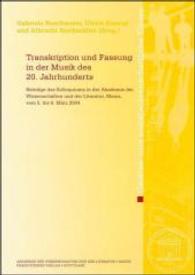- ホーム
- > 洋書
- > 英文書
- > History / World
Full Description
Following Zwingli explores history, scholarship, and memory in Reformation Zurich. The humanist culture of this city was shaped by a remarkable sodality of scholars, many of whom had been associated with Erasmus. In creating a new Christian order, Zwingli and his colleagues sought biblical, historical, literary, and political models to shape and defend their radical reforms. After Zwingli's sudden death, the next generation was committed to the institutional and intellectual establishment of the Reformation through ongoing dialogue with the past. The essays of this volume examine the immediacy of antiquity, early Christianity, and the Middle Ages for the Zurich reformers. Their reading and appropriation of history was no mere rhetorical exercise or polemical defence. The Bible, theology, church institutions, pedagogy, and humanist scholarship were the lifeblood of the Reformation. But their appropriation depended on the interplay of past ideals with the pressing demands of a sixteenth-century reform movement troubled by internal dissention and constantly under attack. This book focuses on Zwingli's successors and on their interpretations of the recent and distant past: the choices they made, and why. How those pasts spoke to the present and how they were heard tell us a great deal not only about the distinctive nature of Zurich and Zwinglianism, but also about locality, history, and religious change in the European Reformation.
Contents
Chapter 1 Emulating the Past and Creating the Present: Reformation and the Use of Historical and Theological Models in Zurich in the Sixteenth Century, Bruce Gordon, Luca Baschera, Christian Moser; Chapter 2 Patristics and Polemic: Josias Simler's History of Early Church Christological Disputes, Mark Taplin; Chapter 3 Bullinger's Model for Collective Episcopacy: Transformational Ministry in a Society Facing Final Judgment, Jon Delmas Wood; Chapter 4 Peter Martyr Vermigli's Epistle to the Princess Elizabeth : Models of Redemptive Kingship, Torrance Kirby; Chapter 5 A Mirror of Virtue: Commentaries on the Book of Ruth in Sixteenth-century Zurich, Christian Moser; Chapter 6 Reforming a Model: Zwingli, Bullinger, and the Virgin Mary in Sixteenth-century Zurich, Rebecca A. Giselbrecht; Chapter 7 The Childhood of Christ as a Model of Christian Child Raising: Two Sermons of 1553 by Rudolf Gwalther, Kurt Jakob Rüetschi; Chapter 8 Moral Treatment of Immoral Texts from Classical Antiquity: Conrad Gessner's Martial-Edition of 1544, Urs B. Leu; Chapter 9 Shaping Reformed Aristotelianism: Otto Werdmüller's Evaluation of the Nicomachean Ethics in De dignitate, usu et methodo philosophiae moralis (1545), Luca Baschera; Chapter 10 'Praeceptor amicissimus': Konrad Pellikan, and Models of Teacher, Student and the Ideal of Scholarship, Matthew McLean; Chapter 11 Fathers and Sons: the Exemplary Lives of Konrad Pellikan and Leo Jud in Reformation Zurich, Bruce Gordon;







